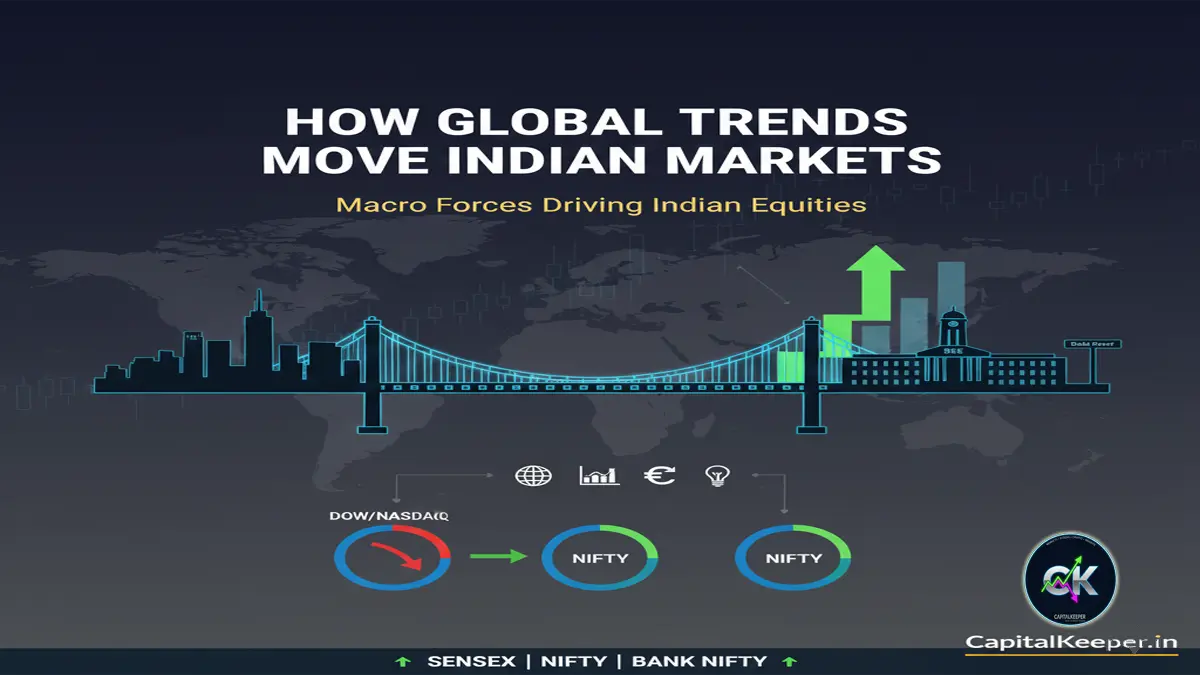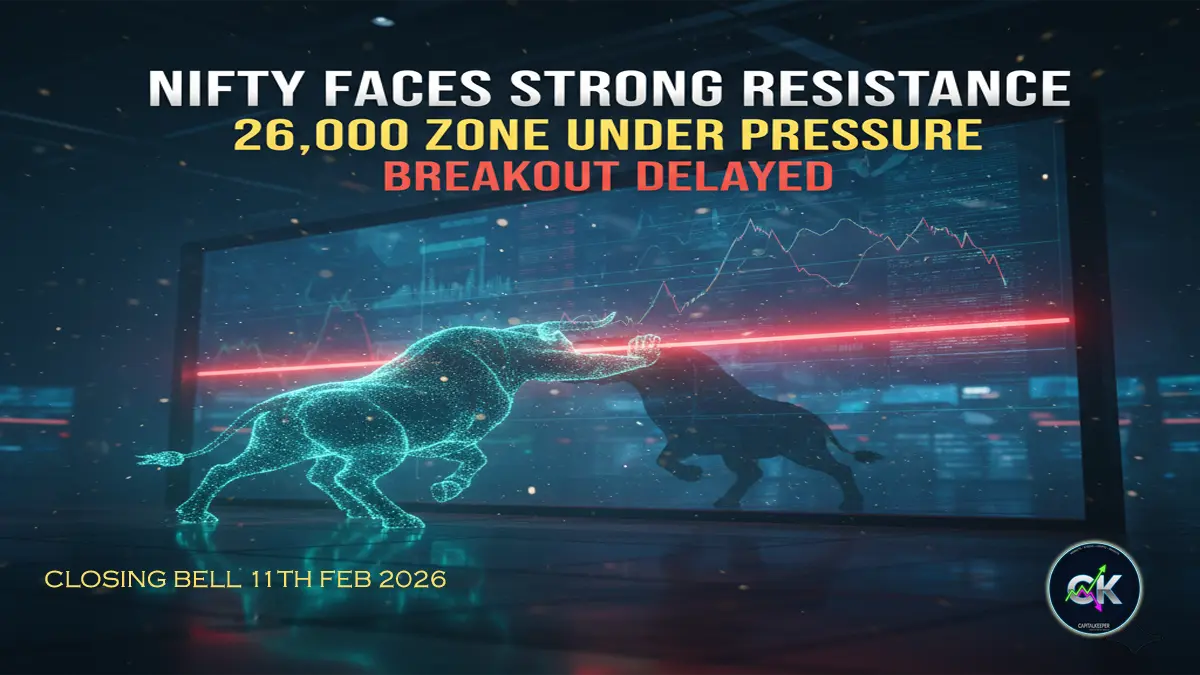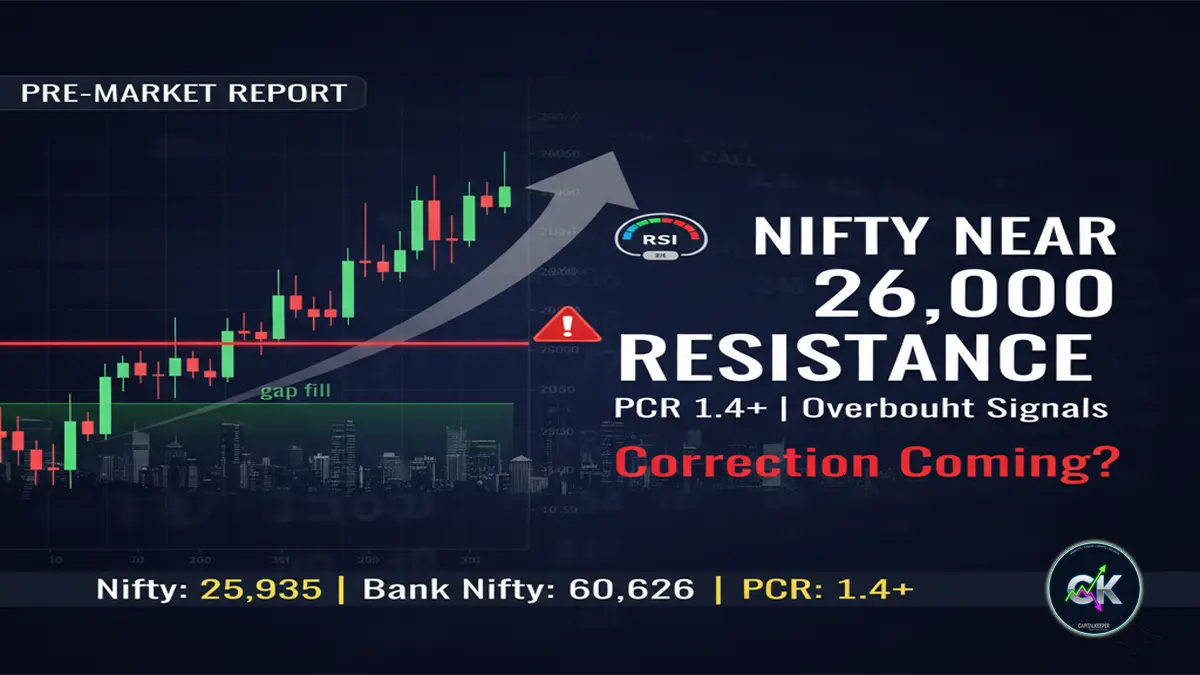Understanding Market Depth and Algorithmic Trading Strategies: A Smart Trader’s Guide
By CapitalKeeper | Beginner’s Guide | Indian Sock Market | Market Moves That Matter I 04th July 2025
In today’s fast-evolving trading world, speed, data, and precision are everything. Traders who go beyond price charts and explore the order book and market depth gain a sharp edge. Even more powerful is when this depth data fuels algorithmic strategies, where trades are executed not by humans, but by intelligent code.
In this blog, we decode:
- What is market depth?
- How to read it effectively?
- How algo traders use this data to make lightning-fast decisions
📌 What Is Market Depth?
Market Depth (a.k.a. Level 2 Data or Order Book) is a real-time snapshot of:
- Buy (bid) orders
- Sell (ask) orders
- Price levels
- Order quantities
It shows the true liquidity in a stock or derivative, beyond just the last traded price (LTP).
📊 How to Read Market Depth
Market depth is displayed in three key columns:
| Buy Side (Bid) | Price | Sell Side (Ask) |
|---|---|---|
| 1200 shares | ₹102.50 | ₹102.55 |
| 950 shares | ₹102.45 | ₹102.60 |
| 1400 shares | ₹102.40 | ₹102.65 |
🧠 What it shows:
- More buyers = strong support
- More sellers = strong resistance
- Tight spread = better liquidity
- Sudden jumps in depth = likely algo activity or news reaction
🧾 Real-Life Use: Nifty Futures Example
- Bid-Ask Spread: ₹24,785 (bid) vs ₹24,790 (ask)
- If sudden 10,000 lots added at ₹24,790 → likely buy wall
- If all bids pull out suddenly → sign of algo-driven exit or panic
⚙️ Types of Algorithmic Strategies Based on Market Depth
Algo traders use market depth data to design and execute strategies at millisecond speeds. Let’s explore the major types:
✅ 1. Iceberg Orders (Hidden Size)
Breaks a large order into smaller visible chunks to avoid price impact.
🔍 Example: Instead of placing 50,000 shares at once, place 500 x 100 orders.
Used by: Institutions, block buyers, and high-volume participants
✅ 2. Market Making Strategy
Places simultaneous buy and sell orders at close ranges to earn the spread multiple times per second.
Used in: Nifty Futures, Bank Nifty Options
Objective: Provide liquidity and earn from volatility
Key tool: Constant adjustment based on real-time depth and volatility
✅ 3. Momentum Ignition
Places a flurry of small aggressive orders to simulate volume → then enters with size.
Risky, sometimes manipulative
Watch out for: Volume spikes without price movement
✅ 4. Sniping & Layering
- Sniping: Enters aggressively as soon as key depth signals appear (like spread contraction)
- Layering: Places dummy orders to test market reactions (illegal if used to manipulate)
✅ 5. VWAP Algorithms
Algo breaks a large buy/sell order to execute close to VWAP, using depth data to choose when to enter without slippage.
Mostly used by institutions, mutual funds, FIIs
✅ 6. Arbitrage-Based Algorithms
- Monitors depth in spot vs futures or NSE vs BSE
- Executes orders when pricing anomalies arise
Example: Reliance trades ₹2 higher on BSE than NSE
Algo auto-buys on NSE, sells on BSE in milliseconds
📡 Where Can You View Market Depth?
| Platform | Market Depth Feature | Access |
|---|---|---|
| Zerodha Kite | Level 1 (Top 5) or Level 2 (Full Book – for pros) | Free/basic |
| Upstox | Snap Quote with depth | Free |
| Fyers One | Real-time full book | Premium |
| Bloomberg Terminal | Full L2 & Smart Order Flow | Institutional access |
| TradingView | Limited | Not full market depth |
🧠 Key Market Depth Signals to Watch
| Signal | Interpretation |
|---|---|
| Bid-wall | Buy interest, support at that level |
| Ask-wall | Resistance zone likely |
| Fake walls | Algo testing market reaction |
| Constant spread widening | Volatility or panic trades |
| Sudden pull of liquidity | Institutional exit or stop-hunting |
📉 Risks in Algo-Based Depth Trading
- Depth changes too quickly for manual traders
- Hidden orders and dark pools distort true demand/supply
- Retail traders often trade against algos, not with them
- Manipulative tactics (spoofing/layering) still exist in some segments
✅ Tips for Retail Traders Using Market Depth
- Focus on top 5 levels only
- Watch for volume consistency, not just bid/ask walls
- Use depth + price action + indicator combo (e.g. VWAP + Order Flow)
- Don’t chase a wall wait for break or absorb confirmation
🧭 Conclusion: Mastering Depth, Matching Speed
Understanding market depth gives traders a real advantage a peek behind the curtain of price. Combine this with even basic algorithmic logic, and your trading becomes more intelligent, precise, and protected.
🎯 Whether you’re trading Nifty futures, options, or large-cap stocks — learning how depth data moves algos, and how algos use it back is the next step in your trader evolution.
📌 For more real-time updates, trade setups, and investment insights — follow us on [Telegram] and subscribe to our newsletter!

📌 Disclaimer
The content provided on CapitalKeeper.in is for informational and educational purposes only and does not constitute investment, trading, or financial advice. While we strive to present accurate and up-to-date market data and analysis, we make no warranties or representations regarding the completeness, reliability, or accuracy of the information.
Stock market investments are subject to market risks, and readers/investors are advised to conduct their own due diligence or consult a SEBI-registered financial advisor before making any investment decisions. CapitalKeeper and its authors are not liable for any loss or damage, direct or indirect, arising from the use of this information.
All views and opinions expressed are personal and do not reflect the official policy or position of any agency or organization. Past performance is not indicative of future results.By using this website, you agree to the terms of this disclaimer.
















Leave a Reply